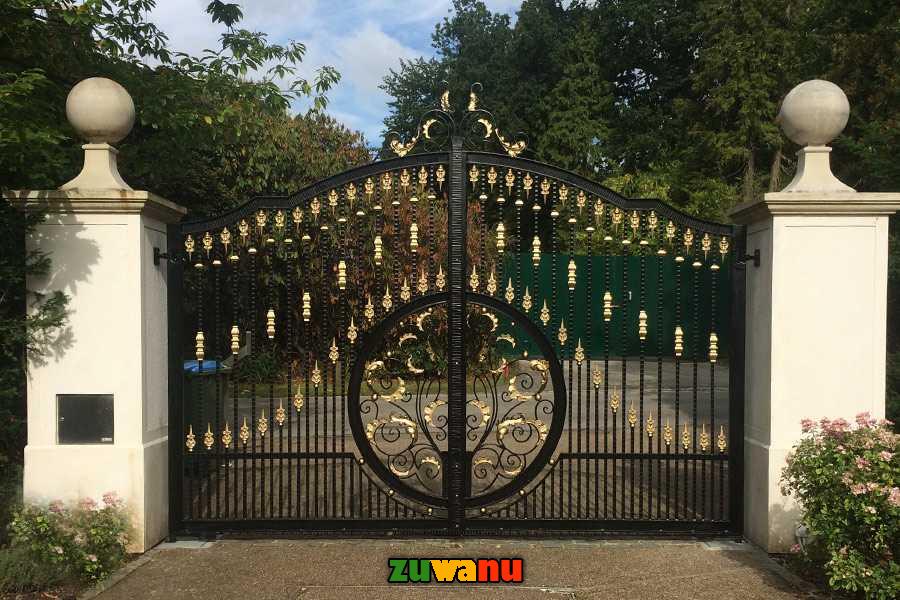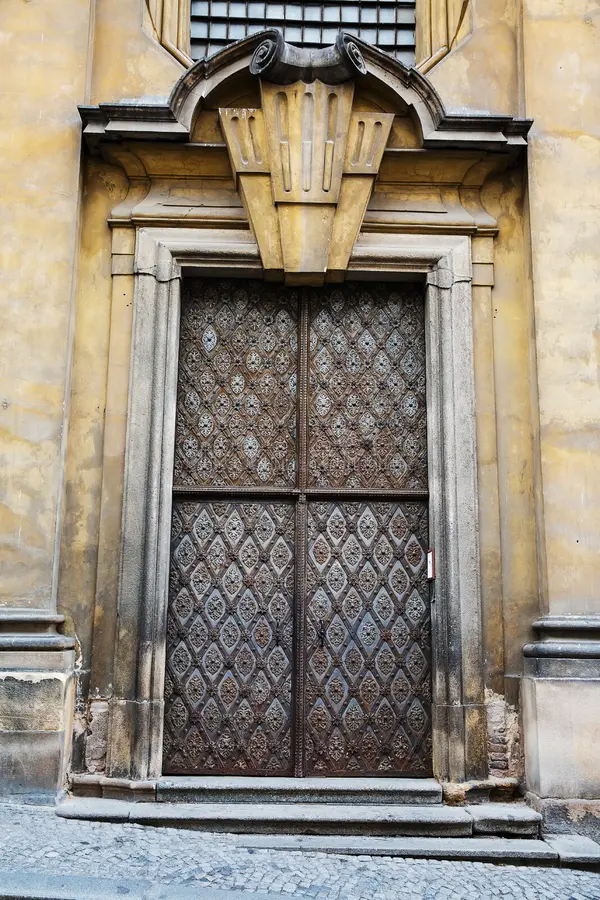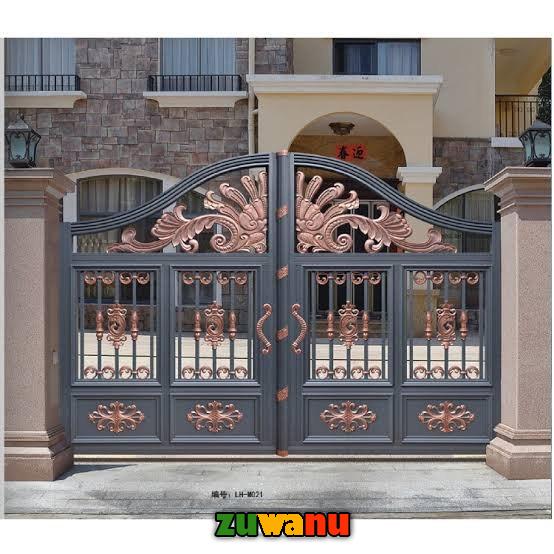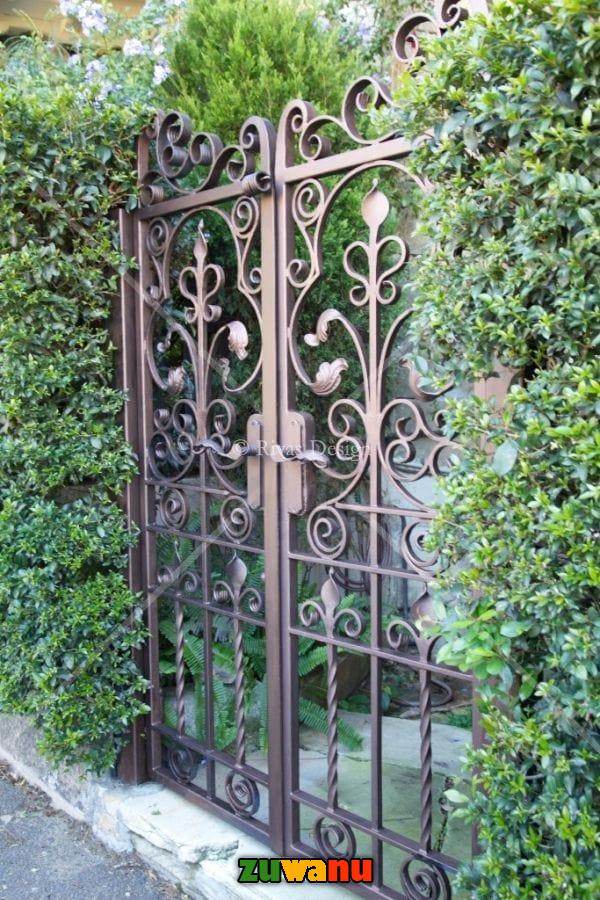Iron Gates: A Comprehensive Guide to Types, Features, Strength, and Security
Table of Contents

Introduction
Iron gates have been an integral part of human history for centuries, serving both functional and aesthetic purposes. From medieval castles to modern urban homes, iron gates have evolved significantly in terms of design, technology, and security. In this extensive article, we will delve into the world of iron gates, exploring their types, features, strength, security importance, and comparing them with their wooden counterparts. We will also highlight the distinctions between conventional iron gates and the exquisite wrought iron gates.
The History of Iron Gates

The use of iron for gates can be traced back to ancient civilizations, where it was primarily utilized for fortifications and protection. Iron gates played a crucial role in securing valuable possessions, maintaining privacy, and establishing a grand entrance. Over time, the craftsmanship of iron gates evolved, resulting in stunning designs that blended both functionality and artistry.
Types of Iron Gates
- Wrought Iron Gates:
Wrought iron gates are renowned for their elegance and intricate designs. These gates are crafted from malleable iron, allowing artisans to create elaborate patterns and decorative elements. Wrought iron gates often feature scrollwork, floral motifs, and ornate details, making them a popular choice for upscale homes, estates, and historic properties. - Cast Iron Gates:
Cast iron gates are formed by pouring molten iron into molds, resulting in a solid and durable structure. While they may not offer the same level of customization as wrought iron gates, cast iron gates are known for their sturdiness and longevity. They are often used in industrial settings, parks, and public buildings due to their robustness. - Forged Iron Gates:
Forged iron gates are created by heating and shaping iron using traditional blacksmithing techniques. These gates boast exceptional strength and can withstand significant wear and tear. Forged iron gates often have a rustic or vintage appearance, making them suitable for historical properties and rural settings. - Modern Iron Gates:
In contemporary architecture, iron gates are often designed with a minimalist and sleek aesthetic. These gates prioritize clean lines and simplicity, making them a suitable choice for modern homes and commercial properties. Modern iron gates can be fabricated from various types of iron, including mild steel, for a more cost-effective option.


Features of Iron Gates
Iron gates offer a multitude of features that make them a popular choice for property owners. Here are some key features of iron gates:
- Durability: Iron gates are exceptionally durable and can withstand harsh weather conditions, including rain, snow, and extreme temperatures. Their resistance to corrosion makes them a long-lasting investment.
- Customization: Wrought iron gates, in particular, allow for extensive customization. Property owners can collaborate with skilled artisans to create unique designs that match their architectural style and personal preferences.
- Security: Iron gates provide a high level of security due to their robust construction. They serve as a physical barrier, deterring intruders and enhancing the safety of the property.
- Aesthetics: Iron gates are admired for their aesthetic appeal. Whether adorned with intricate scrollwork or featuring a modern design, they can enhance the overall curb appeal of a property.
- Low Maintenance: Iron gates require minimal maintenance. Regular cleaning and occasional repainting or resealing are usually sufficient to keep them in excellent condition.
- Versatility: Iron gates can be used in various settings, including residential homes, commercial properties, public spaces, and historical sites. Their versatility makes them suitable for a wide range of applications.
Strength of Iron Gates
The strength of iron gates is one of their most significant advantages. Here are the key factors contributing to their strength:
- Material Quality: Iron gates are typically made from high-quality iron or steel, which is known for its strength and durability. The choice of material and its thickness play a crucial role in determining the gate’s strength.
- Construction Method: The construction method used for iron gates greatly affects their strength. Forged and cast iron gates, in particular, are known for their robustness due to the manufacturing processes involved.
- Design: The design of the gate can also impact its strength. Gates with reinforced frames and sturdy hinges are less likely to sag or weaken over time.
- Installation: Proper installation is essential for ensuring the gate’s strength and stability. Gates should be securely anchored to prevent any vulnerabilities.
Security Importance of Iron Gates
Security is a paramount concern for property owners, and iron gates offer several advantages in this regard:
- Physical Deterrent: Iron gates act as a physical barrier, making it difficult for unauthorized individuals to access the property. This physical presence is often enough to deter potential intruders.
- Enhanced Privacy: Iron gates provide an added layer of privacy by preventing passersby from easily seeing into the property. This can be especially important for residences and businesses that value their privacy.
- Controlled Access: Iron gates can be equipped with various access control systems, such as keypads, intercoms, or remote controls. This allows property owners to control who enters and exits the premises.
- Custom Security Features: Some iron gates can be fitted with security enhancements, including spikes, electronic locks, or surveillance cameras, further bolstering the property’s security.
- Longevity: The durability of iron gates ensures that they remain an effective security measure for many years, providing a long-term solution to property protection.
Comparing Iron Gates to Wooden Gates
While both iron and wooden gates have their merits, there are several key differences to consider when choosing between them:
- Strength and Durability:
- Iron gates are significantly stronger and more durable than wooden gates. They are less susceptible to warping, rotting, and insect damage, making them a better choice for long-term security.
- Maintenance:
- Wooden gates require more maintenance than iron gates. They need regular staining, sealing, and potential repairs to combat the effects of weather and wear.
- Security:
- Iron gates provide superior security compared to wooden gates. Their robust construction and imposing presence serve as a more effective deterrent against intruders.
- Customization:
- While wooden gates can be customized to some extent, wrought iron gates offer a higher level of customization due to the ease of shaping and detailing the iron.
- Aesthetics:
- Wooden gates have a warm and natural aesthetic that can complement certain architectural styles. Iron gates, on the other hand, offer a wider range of design possibilities, from classic to modern.
- Cost:
- Iron gates are generally more expensive upfront than wooden gates. However, their longevity and lower maintenance costs can make them a cost-effective choice in the long run.
Types of Iron Gates in Detail
Let’s explore the different types of iron gates in more detail, highlighting their unique characteristics and ideal applications:
- Wrought Iron Gates: Wrought iron gates are celebrated for their artistry and versatility. Here are some key features:
- Intricate Designs: Wrought iron gates are known for their elaborate designs, often featuring scrollwork, floral patterns, and intricate details. Artisans can handcraft these gates, allowing for a high degree of customization.
- Historical Significance: Many historic properties feature wrought iron gates that reflect the craftsmanship of a bygone era. These gates can add a touch of nostalgia and elegance to any setting.
- Estate Entrances: Wrought iron gates are often chosen for estate entrances and grand driveways, where they make a bold statement and create a sense of luxury.
- Customization: Property owners can work closely with iron artisans to design unique wrought iron gates that perfectly match the architectural style of their property.
- Cast Iron Gates: Cast iron gates are prized for their durability and timeless appeal. Here are some key features:
- Solid Construction: Cast iron gates are made by pouring molten iron into molds, resulting in a solid and uniform structure. This construction method enhances their strength and resilience.
- Classic Elegance: Cast iron gates often feature classic designs with simple lines and patterns. They are well-suited for properties with a traditional or historical aesthetic.
- Public Spaces: Cast iron gates are commonly used in public spaces, parks, and historic landmarks due to their durability and ability to withstand heavy use.
- Low Maintenance: These gates require minimal maintenance, making them a practical choice for installations where ongoing care may be limited.
- Forged Iron Gates: Forged iron gates are known for their strength and rustic charm. Here are some key features:
- Handcrafted Beauty: Forged iron gates are created using traditional blacksmithing techniques, resulting in a unique and rustic appearance. Each piece is hand-forged, adding to its individuality.
- Rural Settings: These gates are often chosen for rural and countryside properties, as they blend seamlessly with natural surroundings.
- Strength and Durability: Forged iron gates are exceptionally strong and can withstand harsh weather conditions, making them suitable for outdoor use.
- Customizable: While they have a rustic look, forged iron gates can still be customized to incorporate specific design elements or personalized touches.
- Modern Iron Gates: Modern iron gates are characterized by their sleek and minimalist designs. Here are some key features:
- Contemporary Aesthetics: These gates prioritize clean lines, geometric shapes, and a minimalist aesthetic, making them ideal for modern and urban settings.
- Versatility: Modern iron gates can adapt to a wide range of architectural styles, offering a timeless and sophisticated appearance.
- Commercial Use: They are often chosen for commercial properties, including offices, hotels, and contemporary buildings, where a modern aesthetic is desired.
- Security: Despite their minimalist design, modern iron gates provide robust security, making them suitable for both residential and commercial applications.
Highlights of Wrought Iron Gates vs. Conventional Iron Gates
Wrought iron gates hold a special place in the world of iron gates due to their unique characteristics and artisanal craftsmanship. Here, we will highlight the distinctions between wrought iron gates and conventional iron gates:
1. Artistic Customization:
- Wrought Iron Gates: Wrought iron gates offer unparalleled artistic customization. Skilled artisans can create intricate designs, personalized motifs, and ornate details that reflect the property owner’s taste and style.
- Conventional Iron Gates: Conventional iron gates, such as cast or forged iron gates, may have limited customization options in terms of design complexity and detailing.
2. Elegance and Intricacy:
- Wrought Iron Gates: Wrought iron gates are celebrated for their elegance and intricacy. They often feature scrollwork, floral patterns, and decorative elements that lend a sense of grandeur to the entrance.
- Conventional Iron Gates: Conventional iron gates tend to have simpler and more traditional designs, making them suitable for properties with a classic or understated aesthetic.
3. Historical Significance:
- Wrought Iron Gates: Wrought iron gates often have historical significance, particularly in older properties and heritage sites. They evoke a sense of nostalgia and timeless beauty.
- Conventional Iron Gates: While conventional iron gates may also be used in historical settings, they may lack the same level of historical charm and craftsmanship.
4. Price and Investment:
- Wrought Iron Gates: Wrought iron gates are typically more expensive due to the labor-intensive craftsmanship involved. However, they are considered a valuable investment in enhancing a property’s overall value and aesthetics.
- Conventional Iron Gates: Conventional iron gates, such as cast or forged iron gates, are often more cost-effective while still providing the durability and security associated with iron gates.
5. Versatility:
- Wrought Iron Gates: Wrought iron gates can be adapted to a wide range of architectural styles, from classical to contemporary, making them versatile in their application.
- Conventional Iron Gates: Conventional iron gates may be better suited to specific settings or preferences, such as rustic environments or classic designs.
gate for sale in nigeria.
If you’re looking for gates for sale nearby in Nigeria recommend the following designs of kids from seller’s from zuwanu. The designs for the featured wrought iron gates below a classy and strong built with security purposes in mind they still have the current design being built my gift makers.
iron gate price in nigeria, things to lookout .
The exact price of metal gates varies in Nigeria depending on the companies supplying the gates. From our findings the price of iron gate in Nigeria ranges from 500,000 naira to 1.2 million naira.
The prices for iron gates can vary significantly depending on various factors, including the type of iron gate, size, design complexity, materials used, and the manufacturer or supplier. Additionally, economic conditions and market trends can also impact pricing.
To get accurate and up-to-date pricing information for iron gates in Nigeria, I recommend the following steps:
- Contact Local Suppliers: Reach out to local suppliers, manufacturers, or retailers of iron gates in Nigeria. They can provide you with current price quotes based on your specific requirements.
- Request Multiple Quotes: To ensure you get a competitive price, it’s a good practice to request quotes from multiple suppliers. This allows you to compare prices, designs, and services offered.
- Consider Customization: Keep in mind that custom-designed iron gates may cost more than pre-fabricated or standard designs. If you have specific design preferences, discuss this with suppliers for accurate pricing.
- Factor in Installation Costs: Installation costs are often separate from the price of the gate itself. Discuss installation services and associated costs with the supplier or contractor.
- Local Market Conditions: Be aware that prices can vary from one region of Nigeria to another due to differences in demand, supply, and local economic conditions.
- Budget and Quality: Determine your budget for the iron gate project and balance it with your quality requirements. Sometimes, higher-quality materials and craftsmanship may come at a higher price.
- Consider Additional Costs: Factor in any additional costs such as paint or finish for the gate, locks, hinges, and any customization or decorative elements.
- Check for Warranty: Inquire about warranties and after-sales service, as these can vary among suppliers.
To get the most accurate and current price estimates, it’s essential to directly contact suppliers or manufacturers in Nigeria. Additionally, it’s a good idea to visit showrooms or websites of local companies that specialize in iron gates to explore design options and get a better understanding of the pricing structure. Finally, be sure to obtain written quotes with detailed specifications before making a purchasing decision.
Conclusion
Iron gates have come a long way from their historical origins as protective barriers to their current status as works of art and symbols of security. Whether you opt for the elegance of wrought iron gates, the durability of cast or forged iron gates, or the modern appeal of contemporary designs, iron gates offer a combination of strength, security, and aesthetic value that is hard to match.
Understanding the various types of iron gates, their features, strength, and security importance allows property owners to make informed choices when selecting the right gate for their needs. While wrought iron gates steal the spotlight with their artisanal craftsmanship and intricate designs, conventional iron gates, such as cast and forged iron gates, offer practical and durable options for a wide range of applications.
In the end, the choice of an iron gate should align with the architectural style, security requirements, and personal preferences of the property owner. Whichever type of iron gate is selected, it is sure to serve as a lasting and functional addition to any property while making a lasting impression on visitors and passersby alike.
